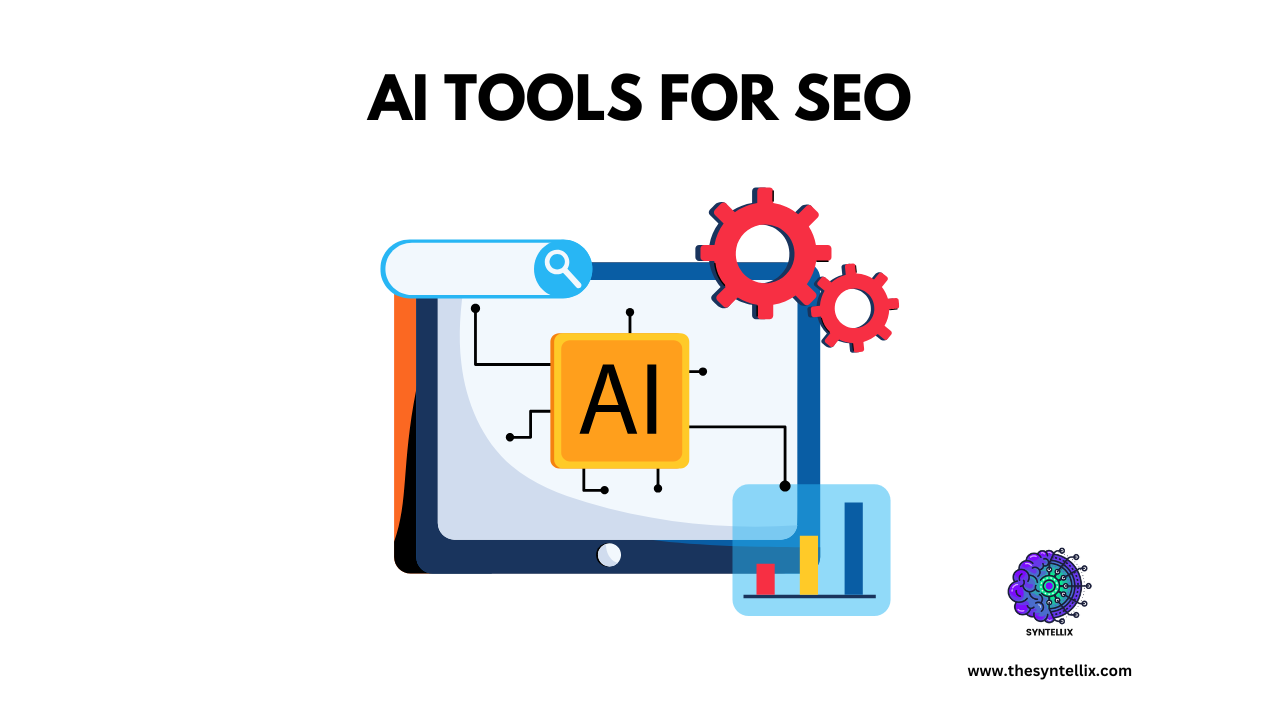When I first got into the SEO field back in 2020, I was incredibly excited about all the possibilities. But I quickly realized something: the tools. There were just so many! I felt completely overwhelmed trying to figure out which ones were actually worth the time, effort, and money.
After a lot of trial and error, I finally found a handful of AI tools that have completely changed my workflow. They’ve not only made my job easier but also helped me achieve better results with less effort.
For me, AI tools for SEO aren’t about replacing human strategists; they’re about working smarter. They simplify tasks, analyze massive amounts of data in seconds, and give me insights I could never find on my own. They help me stop guessing and start making data-backed decisions.
Now, let me share my top five AI tools for SEO and how I use them.
1. ChatGPT: My Content Co-Pilot
Honestly, I was skeptical at first, but ChatGPT has become my go-to for so many things. Its ability to understand and process natural language is incredible. I don’t just use it to generate blog posts; I use it to understand search intent. For any given topic, I’ll ask it to help me figure out what people are really looking for, whether it’s an informational article, a product review, or something else entirely.
For me, the key features that make it a must-have are:
-
Creating SEO-friendly outlines: I can ask it to structure an article with proper headings (H1,H2,etc.) and bullet points, which makes the content easier for both people and search engines to read.
-
Seamless keyword integration: Instead of keyword stuffing, I use ChatGPT to help me weave in semantically related terms and phrases. It makes the content feel natural and conversational, which Google loves.
-
Multilingual content: I’ve been able to easily create content in different languages for global SEO projects, which would have been a huge headache otherwise.
It acts like an intelligent assistant that helps me bridge the gap between what users need and what Google’s algorithms want. I use it to brainstorm ideas, draft meta descriptions, and even get suggestions for internal linking. It’s truly my first stop for any content project.
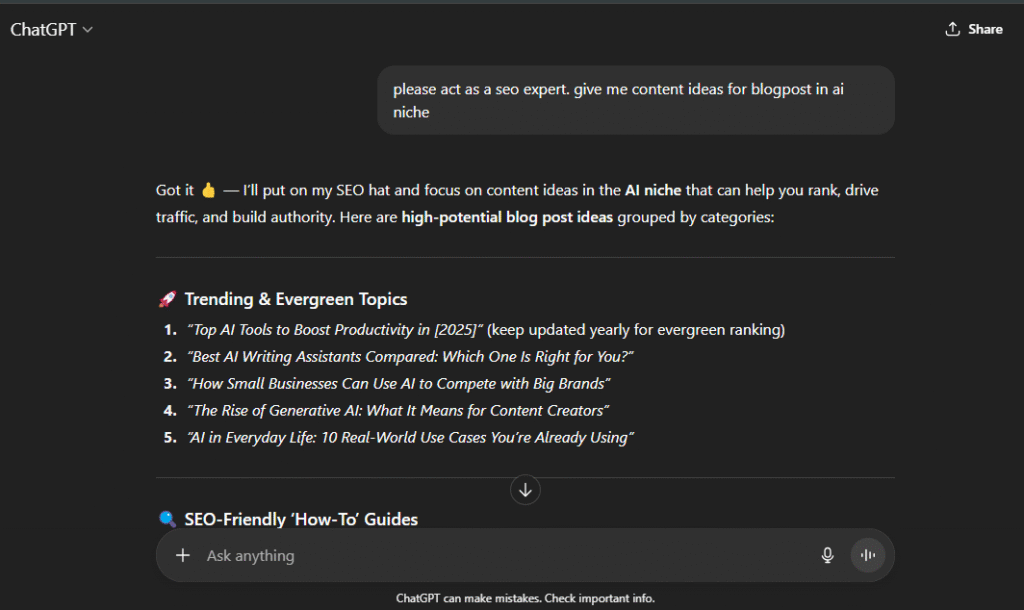
2. SEMrush: The All-in-One Powerhouse
If ChatGPT is my content co-pilot, SEMrush is my entire mission control. This tool is a beast, and it’s the one I rely on most for a complete view of my SEO efforts. I’ve found it’s essential for a few key reasons:
-
Competitor analysis: I can plug in a competitor’s domain and instantly see what keywords they’re ranking for, which pages are getting the most traffic, and where their backlinks are coming from. It’s like getting a cheat sheet for my niche.
-
Deep keyword research: The database is massive. It gives me everything from search volume and keyword difficulty to questions people are asking and long-tail variations I would have never thought of.
-
Site health checks: The Site Audit tool is a lifesaver. It automatically checks for over 140 technical issues on my site, from broken links to mobile usability problems. This helps me fix things quickly and keep my site in good health, which is crucial for rankings.
I use SEMrush to plan my entire SEO strategy. It’s where I start for keyword discovery, where I go to track my rankings over time, and where I get alerts when a new opportunity or problem pops up. It’s an invaluable tool for making data-driven decisions instead of just guessing what to do next.
Here is the screenshot of SEMrush keywords magic tool:
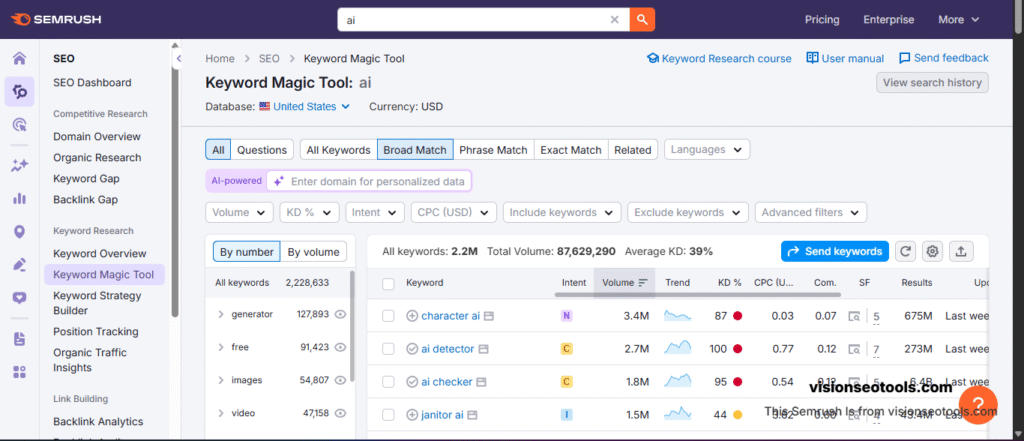
3. Surfer SEO: The On-Page Optimizer
I was a data geek long before I got into SEO, and that’s why I love Surfer SEO. It takes all the guesswork out of on-page optimization. What I love about it is that it doesn’t just give you a checklist; it analyzes the top-ranking pages for a specific keyword in real time. It then gives you a precise blueprint for your own content.
Here’s how I use it to get my pages to the top:
-
Content Editor: This is where the magic happens. As I’m writing, it gives me a real-time score based on its analysis. It tells me how many words to aim for, which semantically related keywords to include, and even how many images or headings to use. It keeps me focused and ensures my content is competitive.
-
SERP Analyzer: Before I even start writing, I use this tool to deconstruct the top results. I can see the content length, backlink profiles, and even the use of partial keywords for each competitor. This helps me understand what’s working and how I can do it better.
-
Audit Tool: For pages that aren’t performing well, the Audit tool is a must. It compares my content to current competitors and tells me exactly what’s missing, from keywords to internal linking opportunities.
The real strength of Surfer SEO is that it gives me actionable, data-backed insights. When I’m working with Jasper to generate content, the seamless integration with Surfer is a game-changer. It means I can create and optimize high-quality, SEO-ready content faster than ever before.
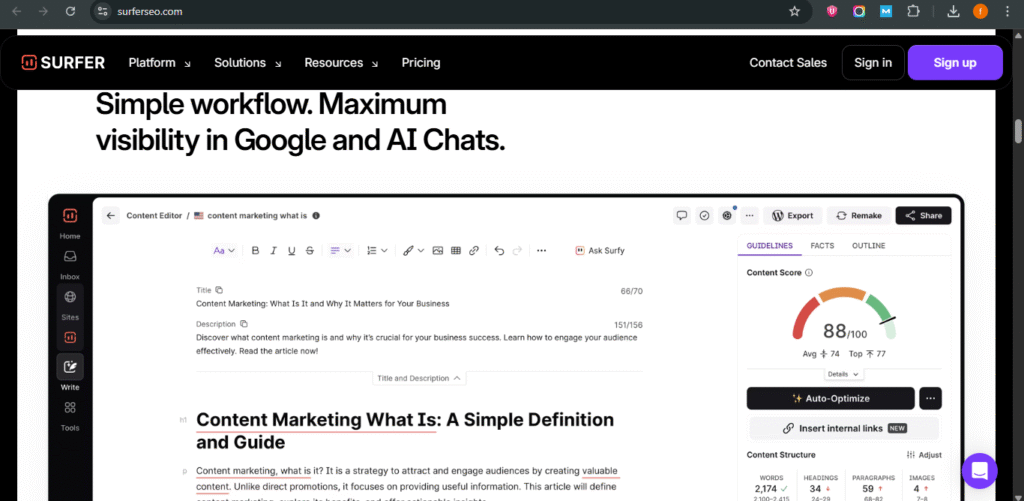
4. Jasper: My Content Creation Machine
Jasper is a fantastic AI writing tool. I’ve found it’s incredibly powerful when I need to create content quickly. While I could use it for a number of things, I use it primarily for generating quality articles with the help of the Surfer integration.
The two tools work together beautifully. Jasper writes the content, and Surfer gives me the real-time feedback to make sure it’s optimized for search engines. This combination is a massive time-saver for me.
It allows me to produce a high-quality, SEO-optimized blog post in a fraction of the time it used to take me.
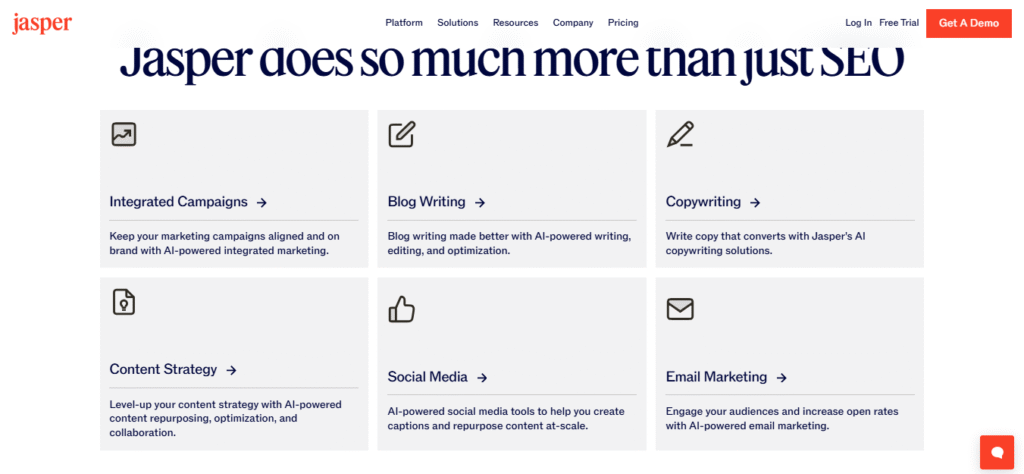
5. Alli AI: The Technical SEO Automation Tool
Alli AI is a bit different from the others. While the rest of my toolkit focuses on content and strategy, Alli AI is all about technical SEO and automation at scale. It’s a fantastic tool for busy website owners and SEO professionals.
Here’s why it’s on my list:
-
One-click optimization: The most impressive feature for me is the ability to deploy on-page changes across thousands of pages at once. If I need to fix meta descriptions or update alt text across a whole site, I can do it instantly without having to manually edit each page.
-
Visual Editor: I can make changes to my live site right from the browser. It works like a visual drag-and-drop tool, which is a huge bonus since I don’t need to be a developer to make important updates.
-
Continuous suggestions: Alli AI’s AI models continuously scan my site and provide tailored recommendations based on the latest best practices and algorithm updates. It’s like having a dedicated technical SEO assistant working in the background.
For me, Alli AI is the tool that frees me up from the repetitive, manual tasks of technical SEO. It allows me to focus on the bigger-picture strategy while it handles the grunt work of implementation.
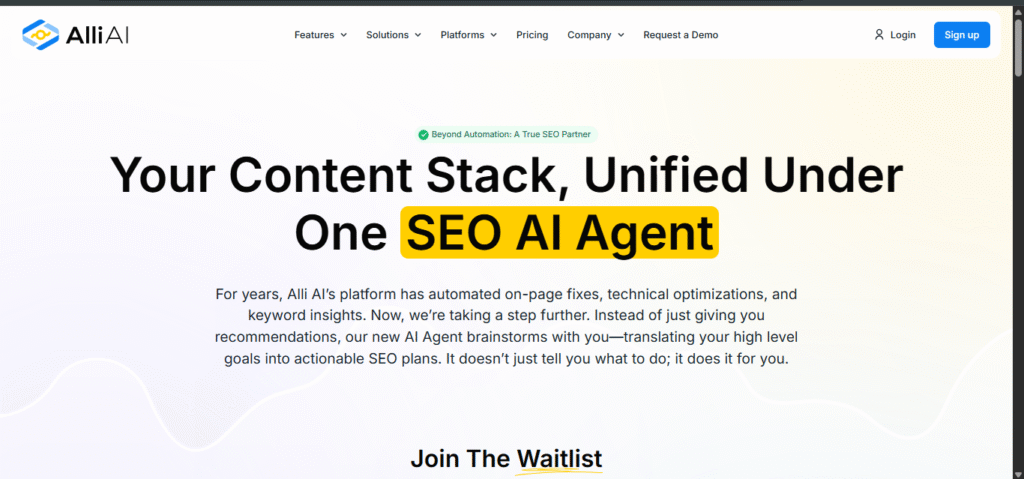
My Takeaway
I’ve spent years in this field, and I can tell you that AI tools for SEO are not a trend, they’re a fundamental shift in how we work. They’ve not only saved me countless hours but have also helped me get better results. My toolkit with ChatGPT, SEMrush, Surfer SEO, Jasper, and Alli AI is what allows me to combine smart automation with data-driven insights. It’s what helps me stay ahead in the rankings.
Have you tried any of these tools? What are your favorites, and how have they helped you in your SEO journey? Share your experiences with me in the comments below!
Read further TOP 8 AI For Small Businesses
FAQs
Which AI tool is best for SEO?
There are several best AI tools for SEO, but SEMrush, Surfer SEO, and ChatGPT are some of the best AI tools for SEO right now.
- SEMrush is great if you want a full SEO toolbox (keywords, writing help, site audit).
- Surfer SEO is perfect for writing content that ranks by comparing top results.
- ChatGPT is great for researching topics and writing SEO-friendly content fast.
Choose the one that fits your goals and workflow best.
What is the best AI writer for SEO?
Jasper AI (especially when used with Surfer SEO) is one of the top AI writers for SEO. It helps you TO create blog posts, product descriptions, and other content that’s not just well-written, but also optimized for search engines. It’s easy to use and saves a lot of time.
Can I use AI for SEO?
Yes, absolutely! AI can help you with many SEO tasks like:
- Finding the right keywords.
- Writing or improving content.
- Optimizing meta titles and descriptions.
- Analyzing your competitors.
It’s a great way to save time and get better results, especially if you’re not an SEO expert.
What is the AI tool to generate SEO keywords?
Tools like SEMrush, Ahrefs, and ChatGPT, all can help you to find the SEO keywords using AI.
They show you:
- What people are searching for.
- How hard it is to rank for a keyword.
- Related keyword ideas.
Just type in a topic, and the tool will give you smart suggestions based on real search data.

Stay ahead of the curve with the latest insights, tips, and trends in AI, technology, and innovation.

